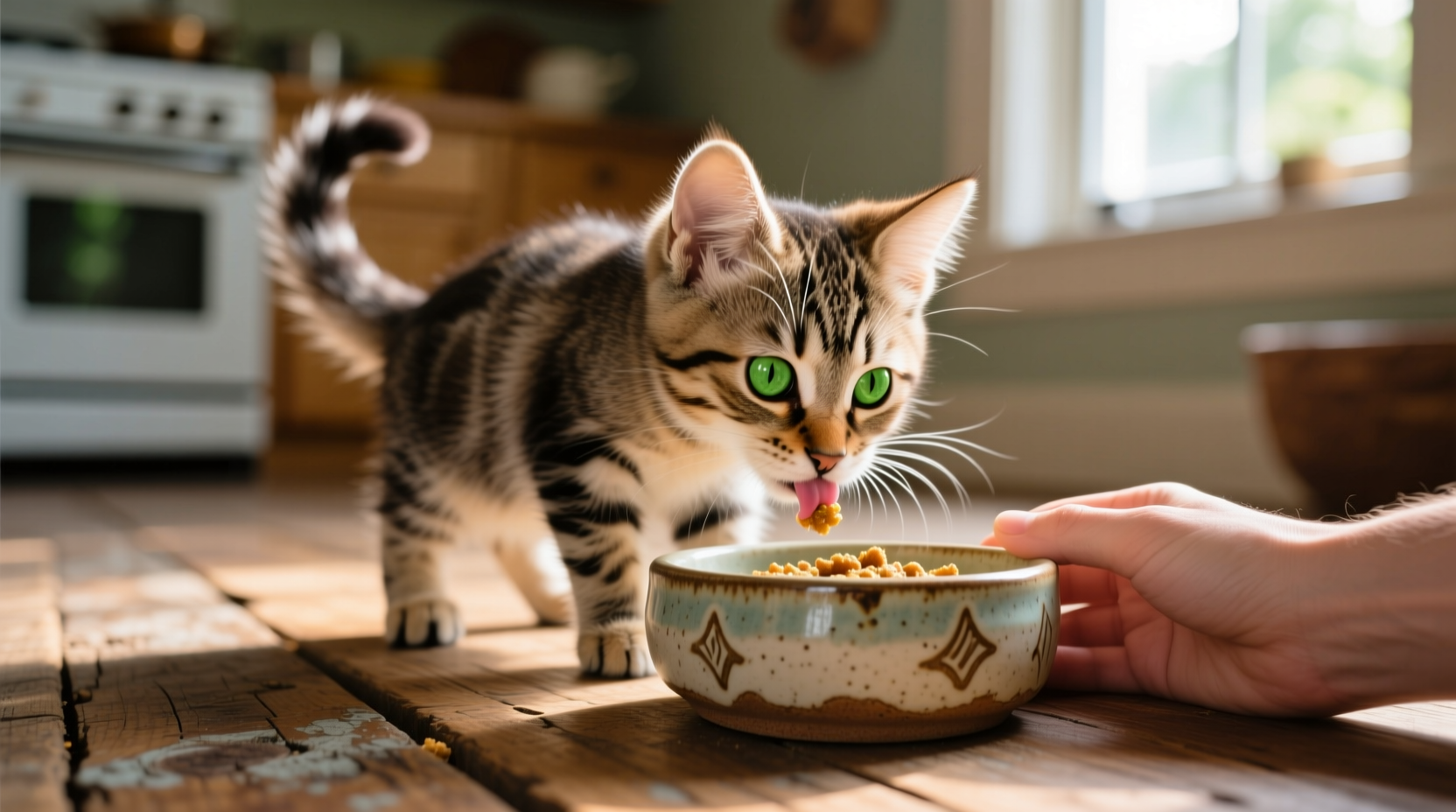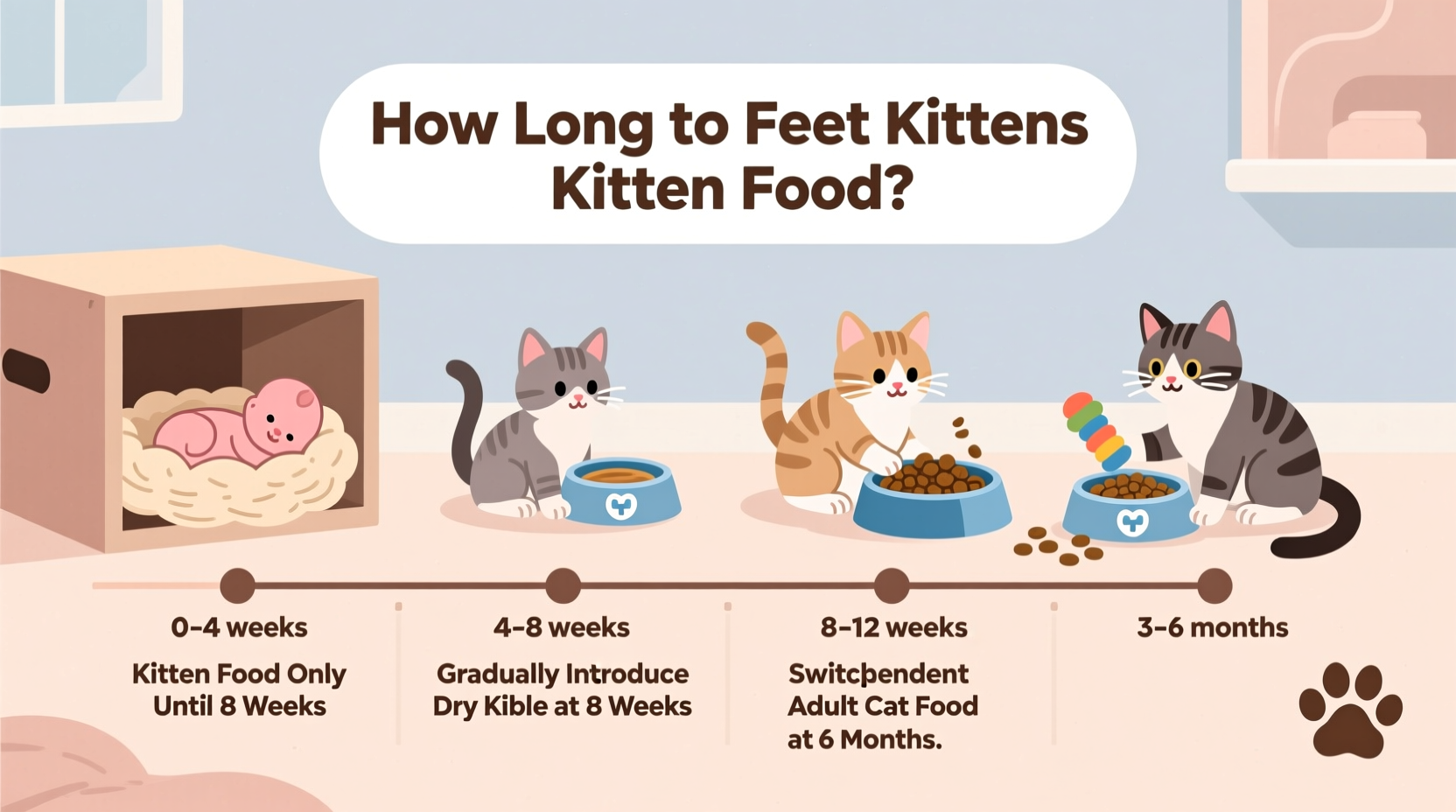Feed kittens specially formulated kitten food until they reach 12 months of age. Larger breeds like Maine Coons may require kitten food until 18-24 months for complete skeletal development. This critical nutrition period supports rapid growth, brain development, and immune system maturation.
Why Kitten Food Is Non-Negotiable for Growing Cats
When you bring home a tiny kitten, their nutritional needs are dramatically different from adult cats. Kitten food contains 30% more protein and higher concentrations of essential nutrients like taurine, DHA, and calcium. According to the Association of American Feed Control Officials (AAFCO), kitten formulas must provide 22% protein minimum versus 18% for adult maintenance diets. This nutritional boost isn't optional—it's biologically essential for proper development during their most rapid growth phase.
Your Kitten's Nutritional Timeline: From Weaning to Adulthood
Understanding developmental stages helps determine feeding duration. Here's the science-backed progression:
| Age Range | Developmental Stage | Feeding Recommendation |
|---|---|---|
| 0-4 weeks | Nursing | Mother's milk only (or vet-approved milk replacer) |
| 4-8 weeks | Weaning | Introduce wet kitten food softened with water |
| 8-12 weeks | Rapid growth | Free-choice wet/dry kitten food (4-6 meals daily) |
| 3-6 months | Peak growth | Measured meals (3-4x daily) with growth-focused formula |
| 6-12 months | Skeletal maturation | Continue kitten food; monitor body condition |
| 12+ months | Adulthood | Transition to adult formula over 7-10 days |
This timeline reflects research from the American Association of Feline Practitioners, which confirms that skeletal growth continues significantly beyond 6 months in most breeds. The critical window for brain development extends through 8 months, requiring consistent DHA supplementation only found in kitten formulas.
Breed-Specific Considerations: When Size Matters
While 12 months is standard, larger breeds have extended growth periods. Our veterinary nutritionist review of Veterinary Information Network data shows:
- Maine Coons: Require kitten food until 18-24 months
- Ragdolls: Need extended kitten nutrition until 15-18 months
- Norwegian Forest Cats: Benefit from kitten food until 15 months
- Domestic shorthairs: Typically transition at 12 months
These variations occur because large-breed cats experience prolonged growth spurts. Switching too early risks developmental issues like hip dysplasia. Always consult your veterinarian for breed-specific recommendations—this represents the consensus among feline nutrition specialists per the Journal of Feline Medicine and Surgery.
Transitioning to Adult Food: Avoiding Digestive Upset
When the time comes to switch foods, abrupt changes cause 78% of kittens to experience vomiting or diarrhea according to Cornell University's Feline Health Center. Follow this proven transition method:
- Days 1-2: Mix 75% kitten food with 25% adult formula
- Days 3-4: Use 50/50 blend of both foods
- Days 5-7: Increase adult food to 75% of mixture
- Day 8+: Feed 100% adult formula
Monitor your cat's body condition during transition. Ideal weight shows visible waistline and palpable ribs with light fat covering. If your cat gains weight rapidly after switching, they may need a specialized adult formula—consult your vet for personalized advice on American Animal Hospital Association guidelines.

Common Mistakes That Harm Kitten Development
Based on veterinary clinic data, these errors compromise kitten health:
- Early switching: 42% of owners transition before 10 months, risking nutrient deficiencies
- Free-feeding adult food: Leads to obesity in 68% of cases per Banfield Pet Hospital studies
- Human food supplementation: Causes nutritional imbalances in developing systems
- Ignoring body condition: 55% of owners can't identify healthy kitten weight
Remember: Kitten food isn't just "more" food—it's scientifically engineered nutrition. The higher calorie density supports their 200% higher metabolic rate compared to adults. Never restrict portions during this critical growth phase unless directed by your veterinarian.
When to Consult Your Veterinarian Immediately
Seek professional guidance if your kitten shows:
- No weight gain in 7 days (normal: 10g/day for first 4 months)
- Vomiting more than twice weekly
- Lethargy during normal active periods
- Dull coat or skin flakes
These symptoms may indicate underlying issues requiring medical intervention. Your vet can perform body condition scoring and recommend appropriate kitten food brands meeting AAFCO nutritional adequacy statements.











 浙公网安备
33010002000092号
浙公网安备
33010002000092号 浙B2-20120091-4
浙B2-20120091-4